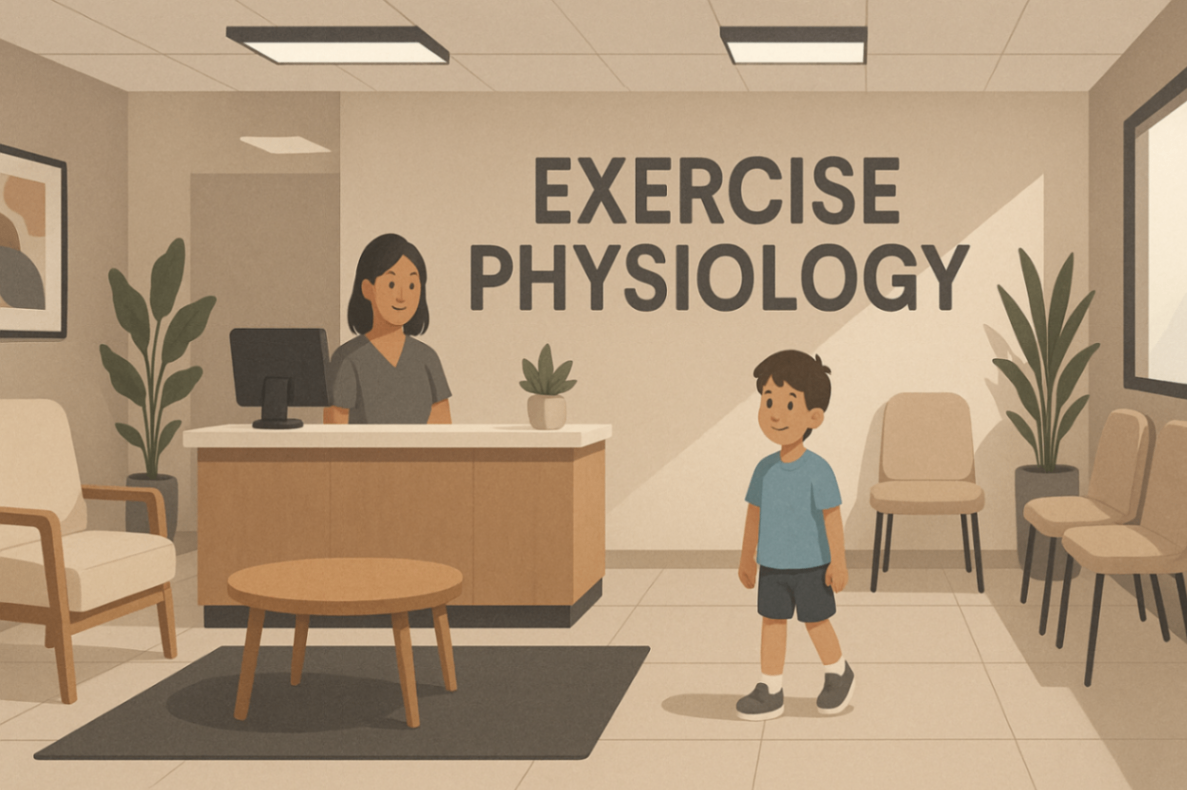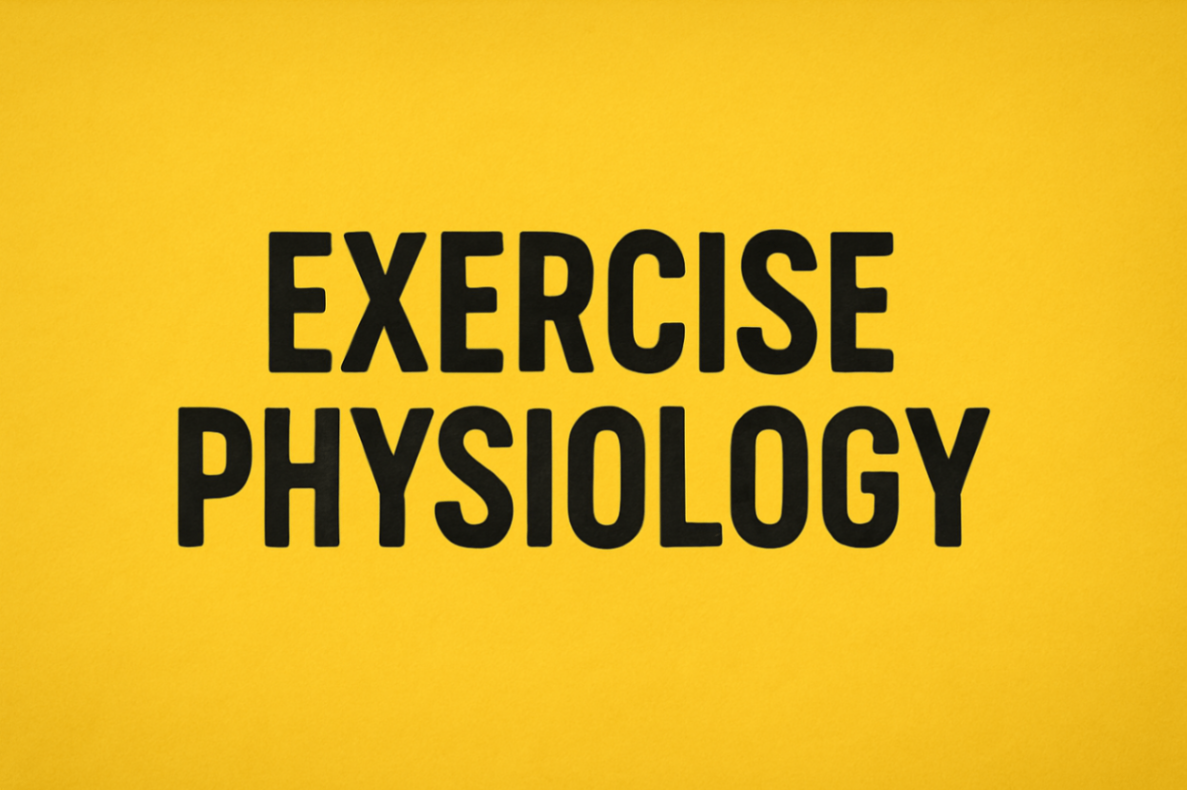
what to expect at your first exercise physiology liverpool appointment
16 July, 2025

Key Highlights
-
Explore how your first exercise physiology appointment in Liverpool integrates sports science and practical expertise.
-
Understand how exercise physiologists leverage tailored strategies for diverse individual needs.
-
Gain clarity on the tuition fees, entry requirements, and scholarship options for studying exercise sciences.
-
Learn about the hands-on experiences offered to students through various assessment methods and state-of-the-art facilities.
-
Discover the support available for international students, ensuring an enriching academic journey.
-
Dive into the personalized approach to developing effective exercise plans for medical conditions or fitness goals.
Introduction
Are you getting ready for your first exercise physiology appointment? This field uses sports science and health strategies to help you live better or manage a health problem. An exercise physiologist will look at your current physical state and then create a custom exercise plan that fits what you want to achieve. At Liverpool, these sessions are made to teach, guide, and give you the tools you need to build better habits. Whether you need help with recovery, want to get fitter, or need support for any health issue, these appointments use both science and real-world advice to change the way you approach fitness.
For advice on what to ask practitioners about experience, NDIS-awareness and outcome tracking, read How to Find an Exercise Physiologist — Near Me, Today.
Understanding Exercise Physiology
 Exercise physiology looks at sports science and healthcare together. It is a scientific study that shows how physical activity changes your body and health. Exercise physiologists use facts and good ideas to help people feel better, get stronger, or heal from medical conditions. The work they do goes from research in labs to using new methods, all to understand how your body moves.
Exercise physiology looks at sports science and healthcare together. It is a scientific study that shows how physical activity changes your body and health. Exercise physiologists use facts and good ideas to help people feel better, get stronger, or heal from medical conditions. The work they do goes from research in labs to using new methods, all to understand how your body moves.
What to Expect at Your First Exercise Physiology Appointment
When you walk into your first session, you’ll experience a mix of learning and hands-on support. The clinic exercise physiologist will check your physical condition using methods grounded in sports science. You’ll discuss your health history, current activity levels, and future goals.
From day one, you’ll see that everything is tailored to you. Your plan will reflect your lifestyle, abilities, and goals—making this appointment the foundation of your progress. The mix of expert input and open conversation sets you up for success.
What Does a Clinical Physiologist or Therapist Do?
These healthcare professionals assess, monitor, and support people’s physical function, often using specialised tools and techniques. A clinical physiologist may run tests on heart or lung performance, while an exercise physiotherapist works more hands-on to help people return to movement after injury or illness.
Together with exercise therapists, they translate lab results and physical assessments into everyday actions—so people feel more confident and capable in their movement.
Health and Fitness Screening Procedures
Health screenings are very important if you want to know what you can do for physical activity. At your assessment, the steps will help find any hidden medical conditions and check for any possible risks. Occupational health checks make sure your plan to exercise is safe and fits your health needs.
Screenings often include:
-
Detailed questions about your health and your past physical activity.
-
Full checks to look for your physical strengths and weaknesses.
-
Special checks that focus on your medical conditions or your fitness level.
These steps help share useful skills and ways to check your progress. They give good advice to you and the exercise physiologist for what you should do next. You can look forward to clear guidance to make sure you are safe and can get the most out of your physical activity.
Physical Assessments and Measurements
Physical assessments are a big part of every exercise physiology appointment. These checks use advanced tools, like ultrasound machines, to look at your heart and blood vessels as part of vascular physiology. People also use lab techniques, including fundamental scientific techniques such as research methods and biochemistry tests, in these checks to help get a better look at your health.
The checks bring together basic methods and the latest technology. Here is what you may see during your visit:
|
Equipment |
Purpose |
|---|---|
|
Ultrasound Machines |
Check the heart and blood vessels |
|
Cardiopulmonary Testing Tools |
Look at breathing while you exercise |
|
Biochemistry Lab Analysis |
Watch how your body uses energy while you are active |
These tools let people who work in exercise physiology build a fitness plan that fits you. They use the results to make sure the plan matches your body’s needs.
Preparing for Your Appointment
 Getting ready for your first appointment takes some care and planning. Before you meet your exercise physiologist, be sure to bring your health history, details of any occupational health checks, and your own fitness goals. Having these things with you makes the first checkup smoother. It will also help your exercise physiologist to give tips made just for you.
Getting ready for your first appointment takes some care and planning. Before you meet your exercise physiologist, be sure to bring your health history, details of any occupational health checks, and your own fitness goals. Having these things with you makes the first checkup smoother. It will also help your exercise physiologist to give tips made just for you.
The Clinical Exercise Physiology MSc at Liverpool focuses on the practical application of research within the School of Sport and sport science, giving people key knowledge about getting ready for a client meeting. In this field, clinical exercise physiologists have an increasingly prominent role in working with clients to maintain healthy lifestyles. Getting a good honours degree in a related discipline will also help you understand the ins and outs of health. When you get ready, make sure you tell the exercise physiologist about any health worries you have or what you want to get from this work together.
Your Initial Assessment with an Exercise Physiologist
The first assessment with an exercise physiologist helps start your fitness journey on the right track. During this time, the exercise physiologist will collect your health information in an organised way. There might also be laboratory practicals to see how your body reacts when you move or exercise, using a range of assessment methods.
After the assessment, you will get feedback. This will cover things that can help your wellness or help you get better, like muscle strength or how flexible you are. The mix of science and a plan just for you makes this starting point strong for your future progress and helps set you up to do well later.
Developing Your Personalised Exercise Plan
Creating a personalised exercise plan means mixing proven ideas with what works in real life. After talking about your health and daily routine, the physiologist designs special strategies for you using core modules, classroom discussion, and up-to-date research, including a comprehensive research project.
This plan looks at what you need for your fitness or health. It includes exercises that are right for you. The idea is to set goals you can reach and use new ways to help you do well for a long time. You get to try research-based techniques that help meet your goals.
Setting Realistic Goals with Your Exercise Physiologist
Good fitness plans start when you set goals you can reach. Working with your exercise physiologist will help you shape these goals, as you see which ones you have finished well.
Some main ways to do this include:
-
Talking about different learning types and the varied learning preferences of our students, so goals can fit what works best for you.
-
Putting focus on giving you a variety of ways to choose, so you stay driven.
-
Using learning techniques, so you can see your progress in a clear way.
Keep in mind, your big goals connect to the smaller steps you reach as you go. This helps you see how far you have gone and feel glad about the results. With this set-up, you and your exercise physiologist can watch for successful completion and use the best learning techniques for your plan.
Conclusion
Knowing what will happen at your first exercise physiology appointment can help you feel more ready for your journey to better health. You will have health checks and some simple physical tests. The exercise physiologist will work with you to make an exercise plan that fits your needs. Their goal is to help meet your personal goals and help you feel good in your body and mind. This meeting is your chance to get advice from someone who knows how to help you.
Ready to take the first step? Book your consultation now and start moving toward better health, your way.
Frequently Asked Questions
How long does a first exercise physiology appointment usually take?
Most first exercise physiology appointments last about 60 to 90 minutes. In this time, the exercise physiologist will do an initial check-up. They use laboratory practicals and their own practical skills during this process. This helps them understand your needs and helps them in making a plan that works for you. This is the way many clinical exercise physiology MSc professionals work.
Will I need a referral to see an exercise physiologist in Liverpool?
Referrals are not required, but they can be helpful for some people. This depends on the admissions policy and the conditions of any offer made. Liverpool has entry requirements for their clinical exercise programs, which provide an element of choice regarding academic qualifications for admission. For further information on the appeals process, you need to have good academic qualifications to get in. These entry requirements make sure that professionals can meet complex needs. People do not have to give compulsory referrals, so they can work right with fitness assessments.
Can exercise physiology help with chronic health conditions?
Yes, exercise physiologists work with people who have long-term medical conditions. This includes arthritis and heart disease. They use physiology laboratory tests and make a physical activity plan that fits your needs. Their help can get you to move better and also feel better over time. These experts can be a good help for anyone who deals with these medical conditions.
What happens if I have mobility limitations or injuries?
The support unit helps people who have trouble moving or have been hurt. The team brings in a combination of invaluable practical experience, including a compulsory clinical placement, and theoretical learning. They also use different ways to assess everyone. This makes sure each evaluation fits what you need. Lab practicals help the physiologist build programs. These programs focus on your safety and help you recover.
Are sessions covered by Medicare or private health insurance in Australia?
Medicare might pay for some therapy sessions, but private health insurance can often give you more financial support. Your tuition fees may already be lower if you check our full list of scholarships that includes an automatic scholarship worth reduction. in international scholarship webpages. There are also external funding organisations and payment plans that help make exercise physiology sessions more affordable.
.svg)

















